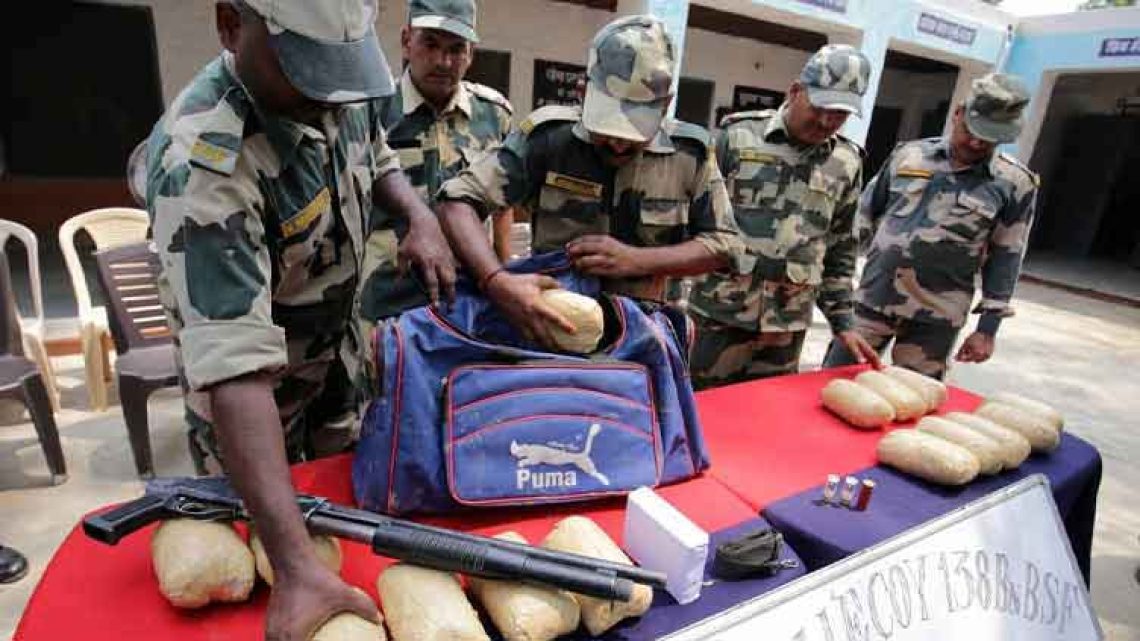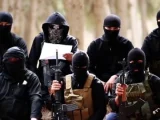
Indian Army Officers Involvement in Narcotics Smuggling and Staged Encounters in IIOJK
September 2, 2024The drug trade in IIOJK primarily involves heroin and opium, much of which is trafficked from Afghanistan through Iran and mainland India. The revenue generated from drug smuggling is believed to be used to fund state sponsored militant activities in the region.
In 2018, a high-profile case emerged involving an Indian Army Major and several other personnel who were arrested for their alleged involvement in a narcotics smuggling racket. They were caught with a significant quantity of drugs while attempting to smuggle them across the LoC. This incident raised serious questions about the involvement of military personnel in drug trafficking.
In another case in 2017, an Indian Army Colonel was arrested in connection with a drug smuggling syndicate operating in IIOJK. The Colonel was reportedly involved in coordinating the transportation of drugs across the border and had ties to local drug cartels. This case highlighted the potential for high-level corruption and involvement of senior officers in the drug trade.
In 2021, several Indian Army soldiers were arrested in Kupwara district, a region close to the LoC, for their involvement in smuggling narcotics. The soldiers were found in possession of a large quantity of drugs, believed to be heroin, which they were attempting to transport to other parts of India. This case once again underscored the vulnerability of military personnel to the lucrative drug trade in the region.
In many cases, military personnel involved in drug smuggling are believed to have colluded with local drug cartels. The Army’s extensive presence and control over border areas provide opportunities for personnel to facilitate the movement of drugs across the LoC.
There have been allegations that some Army personnel have used military vehicles and resources to transport narcotics, leveraging their authority and access to bypass security checks and scrutiny.
The involvement of Army personnel in drug smuggling not only undermines the credibility of the Indian military but also complicates counterinsurgency operations in the region. The illegal drug trade is a significant source of funding state sponsored for militant groups, and any collusion between the military and drug traffickers could lead to serious Human Right Violations.
Such incidents also damage the trust between the local population and the military, further destabilizing the region.
In most cases where Army personnel have been implicated in drug smuggling, the military has initiated court-martials and internal investigations. However, details of these proceedings are often not made public, leading to concerns about transparency and accountability.
The potential for corruption within the ranks of the military, combined with the impunity provided by laws like the Armed Forces Special Powers Act (AFSPA), can hinder efforts to fully address the involvement of Army personnel in drug smuggling.
The drug trade in IIOJK is complex and deeply entrenched, with multiple stakeholders, including local and international networks.
The involvement of military personnel in narco-smuggling in a conflict zone like IIOJK has drawn international attention, particularly from human rights organizations and countries affected by the global drug trade. There have been calls for greater transparency and accountability in dealing with these issues.
Several ongoing investigations into the involvement of Indian Army officers in narcotics smuggling continue to unfold. The outcomes of these investigations will be crucial in determining the extent of military involvement and the measures taken to address it.
To conclude, the involvement of officers in criminal activities like drug smuggling and staged encounters can have a detrimental effect on military morale and discipline. It undermines the ethical standards expected of military personnel and can lead to a loss of respect and trust within the ranks.

